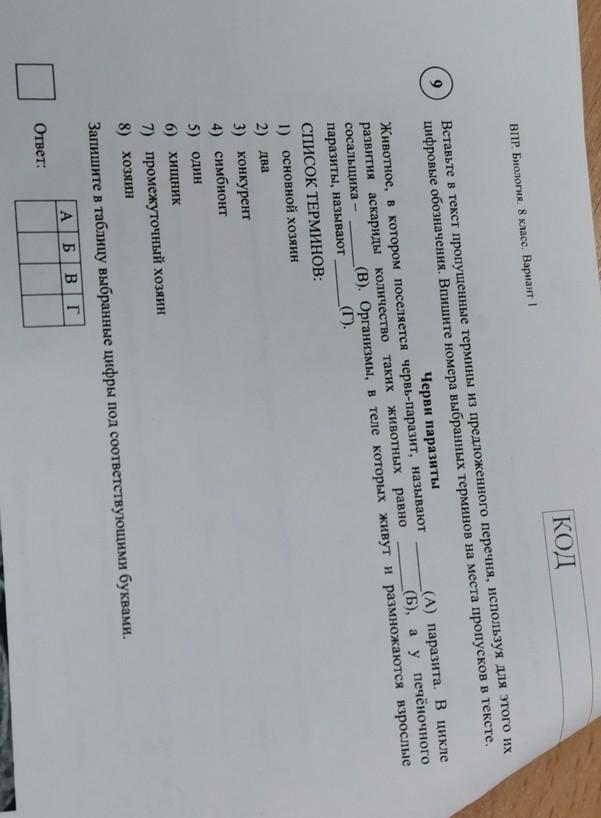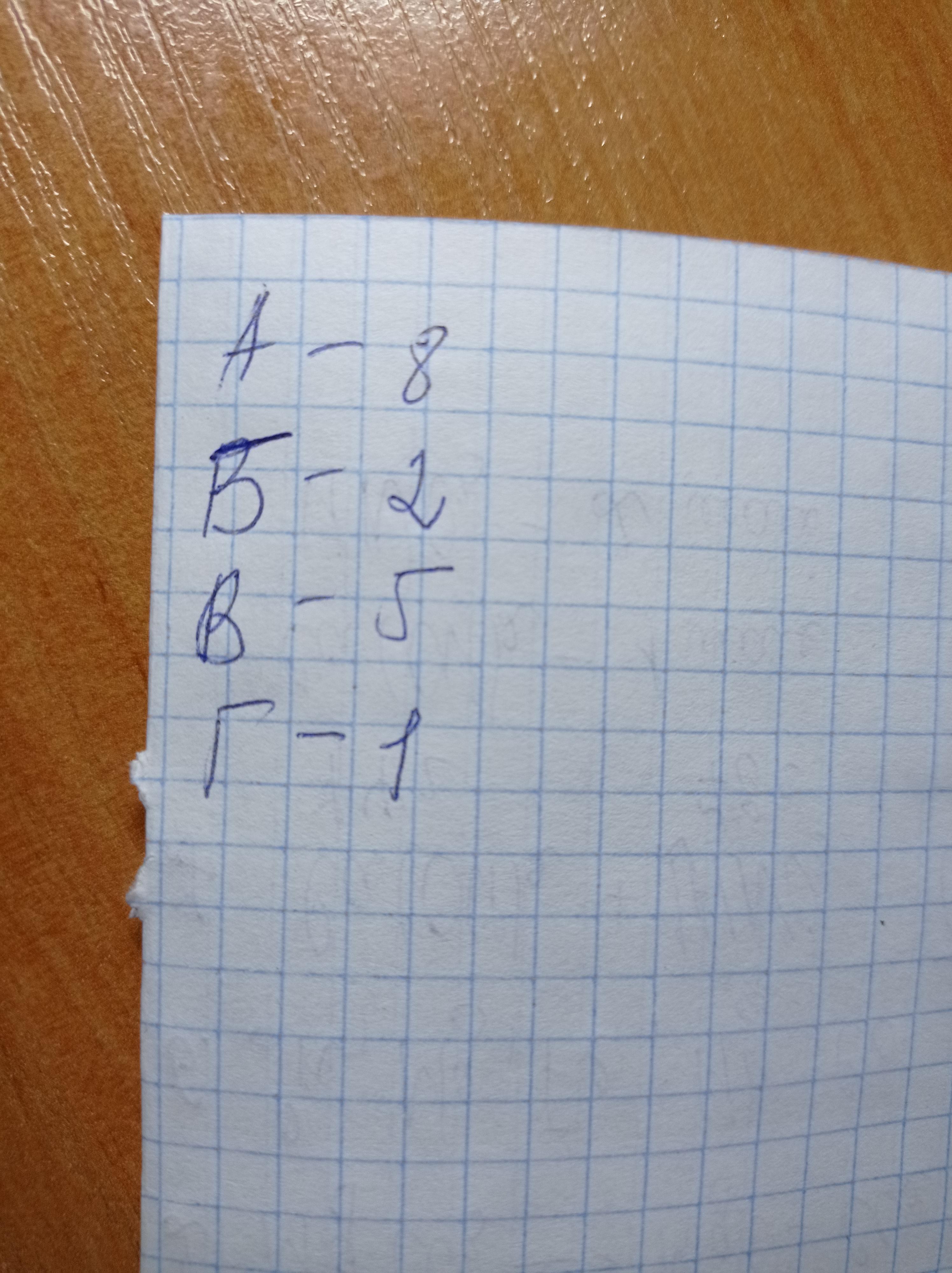СРОООООООООООООООЧНООООООООООООО

Ответы
Відповідь:
Пояснення:

Ответ:
А-8
Б-2
В-5
г-1
Объяснение: Дополнительная информация
Хозя́ин — организм, содержащий внутри вирус, паразита или симбиотического партнёра, обычно обеспечивая его питанием и убежищем. Например, клетка может быть хозяином для вируса, растение семейства бобовых может быть хозяином для полезной бактерии-диазотрофа, животное может быть хозяином для паразитического червя — нематоды.
Первичным хозяином или окончательным хозяином называется хозяин, в котором паразит или симбионт вырастает до зрелости; вторичным или промежуточным хозяином называется хозяин, который предоставляет среду обитания паразиту или симбионту только в течение короткого периода. Для трипаносом, возбудителей трипаносомозов, человек — окончательный хозяин, а муха цеце — промежуточный